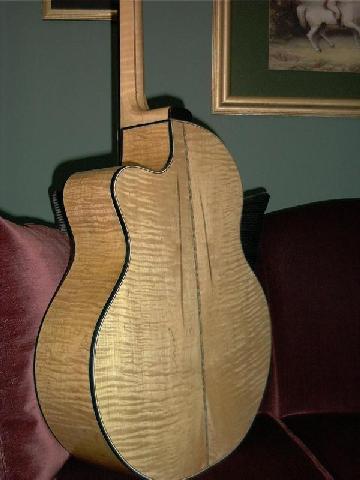Tropical American Mahogany is listed on the CITES appendix II as of April 2003 but only applies to mahogany from 6 countries where it is considered endangered. Plantation grown mahogany is not included as well as mahogany grown in any other country. I could truck a load from
The issue is that it is easy to get around CITES by processing the lumber into parts in the country of origin and at that point it is not regulated at all.
"The U.S. Fish and Wildlife Service announced, effective November 15, 2003, it is implementing new international permit requirements to regulate trade in neotropical bigleaf mahogany under the Convention on International Trade in Endangered Species (CITES). Valid CITES import and re-export permits are now required for logs, sawn wood, veneer sheets, and plywood. Permits are not needed for other parts, derivatives or products."
Because of that last clause, deforestration can continue as long as part of the processing of the lumber is done before importing.
Because of that there is a new proposal that would cover all byproducts from all listed species. If that goes into effect then the only legal use would be from existing inventory which could not then be exported without providing provenance of origin and age. That would be an enforcement nightmare and lobbyists will make sure that it doesnt go through.
To give an example of how far this can go about a year ago a concert pianist was to give a concert in Canada and was transporting his vintage Steinway from New York state into Canada. Because the keys were ivory and ivory is covered under CITES, the piano was stopped at the border because the owner couldnt show that the ivory Steinway had built the piano with in 1928 was the same ivory that was still on the piano!!! Eventually this got resolved but CITES is an important thing to be aware for because of abuses, the regulations will go overboard and restrict everything before then being adjusted for reality.
I only build classical guitars and classical players are a very conservative lot who believe that classical guitars must be made from Brazilian Rosewood with German Spruce tops... In December customs officials in Spain busted a rosewood smuggling cartel that was bringing in old growth brazilian rosewood in containers with cocobolo. Because of things like this CITES will only get stricter and may soon regulate not just the raw wood but the byproducts as well.
The Brazilian Rosewood I use in my classicals is shipped with a CITES export certificate so that I can prove that I used legally obtained wood when I sell a guitar oversees for export. Obviously the stashs of Brazilian that turn up every now and then dont have a CITES certificate but one can be applied for if any documentation exists that traces it prior to CITES.
If you search on eBay for Brazilian Rosewood you will see sellers selling Brazilian that is new growth, poor quality rosewood coming from Brazil but if you ask them for any documentation or a CITES export cert, they will not respond yet they sell it every week. The quality Brazilian that others such as Colonial sells (awesome stuff) is so obviously old, primo stuff that no one would mistake for after CITES.
Buying the best quality tonewoods from reputable dealers now while we can get quality rosewood, mahogany, ebony, etc. is a wise investment in that oncce it is gone the only alternative will be plantation grown which will never match the beauty of slow old growth.
|






